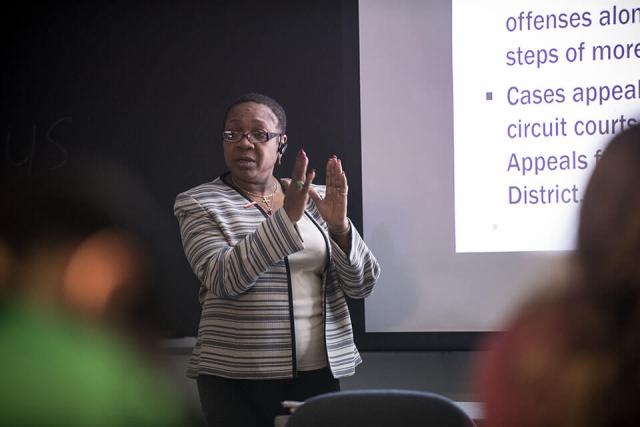
Explore significant issues in crime and criminal justice administration and develop your critical thinking skills about criminal justice with a Master of Science in Criminal Justice. This program will expand your understanding of criminal justice and its current challengesŌĆöwhether youŌĆÖre already working in the field or looking to start your career.
YouŌĆÖll benefit from classes that offer a blend of theory, research, and practical knowledge as you develop an understanding of the realities of crime, criminal justice institutions, and crime control/prevention. Gain in-depth and diverse knowledge through courses in criminal justice administration, criminal justice research, criminal justice policy, criminology, and terrorism/homeland security.
All program courses are taught by full-time expert professors, many with experience in the field. Plus, youŌĆÖll have opportunities to develop original research, produce a capstone project, and take specialized courses that enhance your knowledge.








